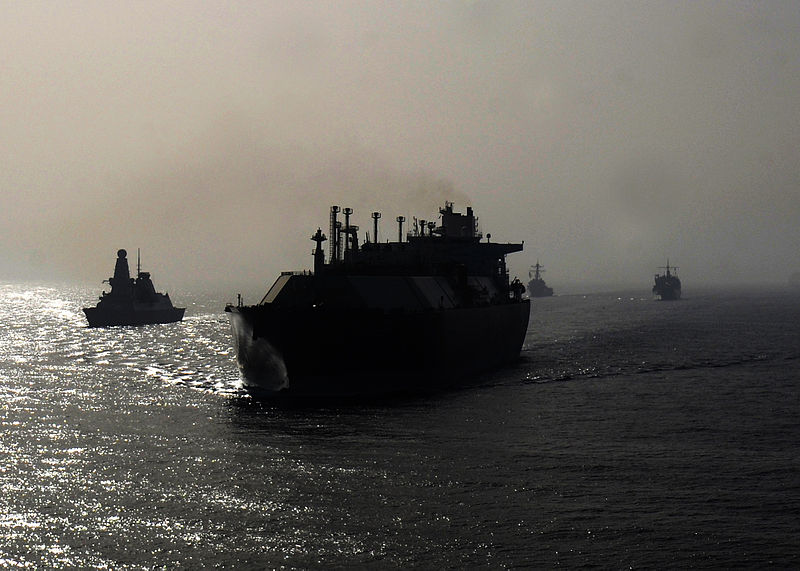
The decision of the United Kingdom to release an Iranian oil tanker held in Gibraltar this last week suggests how much the United States and United Kingdom are reacting differently to the growing crisis with Iran.
The United States had reportedly asked the UK to seize the vessel; its release suggests tensions remain in the relationship.
John Bolton visited London last week to try to close the growing difference in policy views between two normally close NATO allies. The United Kingdom’s new Prime Minister Boris Johnson and his government have signaled a willingness to include U.S. forces in a proposed international maritime mission. This policy differs from that of former United Kingdom Prime Minister Theresa May who had signaled the opposite. The German government has also been emphatic that such a mission remain independent of American efforts.
The United Kingdom is already involved in its own international patrol mission. Bolton’s visit came after the destroyer HMS Duncan arrived in the Gulf earlier this month to support the HMS Montrose in an ongoing escort mission of commercial shipping. The HMS Montrose is set to end its mission in late August with the United States warships set to soon join British efforts. As many as three British flagged vessels transit the strategic waters daily.
While both the United States and the United Kingdom have floated the idea of international missions to provide naval escorts vessels the Straight of Hormuz, the two countries have different visions of that mission.
“The two countries have vastly different views of the best way to deal with the threat, “said an Ministry of Defense Official from a Baltic state who asked to remain anonymous.
In June an American led effort to get NATO to lead the maritime patrol mission ended in disaster. It is unclear how much political capital was spent on the effort.
“I am unaware of any solicitation within an international frameworks of the Atlantic alliance and EU and if the debate reaches Portugal we will analyze the request within our intuitional framework,” said Ana Santos Pinto, Portugal’s Secretary of State for National Defense. Pinto made the statement to the author last month at an event organized by the Portuguese Atlantic Youth Association at the Academia Militar in Lisbon.
A previous NATO operation in the region, Ocean Shield, was launched in 2009 at the height of Somali piracy and quietly ended in 2014.
The hawkish views of Pompeo and National Security Adviser Bolton may be cause for some pause; history suggests that putting more warships into the Gulf may not diffuse tensions. In the 1980s the United States engaged in patrols to protect oil tankers resulting in the so-called “Tanker War”, a U.S. confrontation in Iran that culminated in Operation Praying Mantis, the most significant and decisive U.S. naval victory since World War II and the destruction of half of the operable Iranian navy.
The United Kingdom worries that a strident U.S. approach to the crisis will again serve to heighten, not diffuse such tensions. Even the United States plan for Ocean Sentinel calls on the United States to play only a supporting role to mostly provide logistical and intelligence support to the escorts provided.
The United States is promoting Operation Sentinel as a current CENTCOM driven effort to escort commercial ships that might come under attack from Iran.
According to a Defense Department statement the operation was launched to “promote maritime stability, ensure safe passage, and de-escalate tensions in international waters throughout the Arabian Gulf, Strait of Hormuz, the Bab el-Mandeb Strait (BAM) and the Gulf of Oman.”
Support for the U.S. led mission has been hesitant; however, both Poland and Israel have expressed some interest in the getting involved. The UK under Prime Minister Boris Johnson has also announced the United Kingdom supports the U.S. mission but, many European nations have announced they will not participate including Germany and Spain.
Conversely the U.K. led mission, as of yet unnamed, has garnered the support of France, Italy, Denmark, the Netherlands and Germany. Boris Johson’s government is reportedly seeking the involvement of China, Japan and Russia in such a mission. Japan and China would be well positioned to take part in such an operation since both countries maintain military bases in Djibouti and have been active in anti-piracy missions in the Indian Ocean.
Boris Johnson’s government also plans to invite Japan, Russia and China to take part in joint patrols in order to further make it distinct from Ocean Sentinel. The Chinese ambassador to the United Arab Emirates in a recent media statement also left open the possibility that it would participate in such as mission.
However, Chinese and Russian assistance in such a mission could be just as controversial as an American one. “The problem is you now have division over this mission in both the EU and NATO which are supposed to above all present a united front,” says John Jacobs, the director of Atlantic Forum, a think-tank focused on promoting transatlantic relations,”…but the whole episode has shown disunity to our adversaries – Iran, China, and Russia.”
- Putin Invites Trump To 2020 Victory Day Celebration In Red Square
- Why Global Gas Markets Are Convulsing

